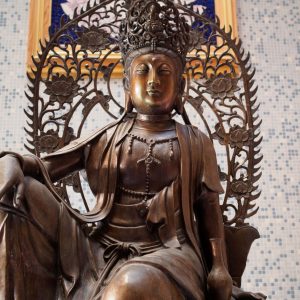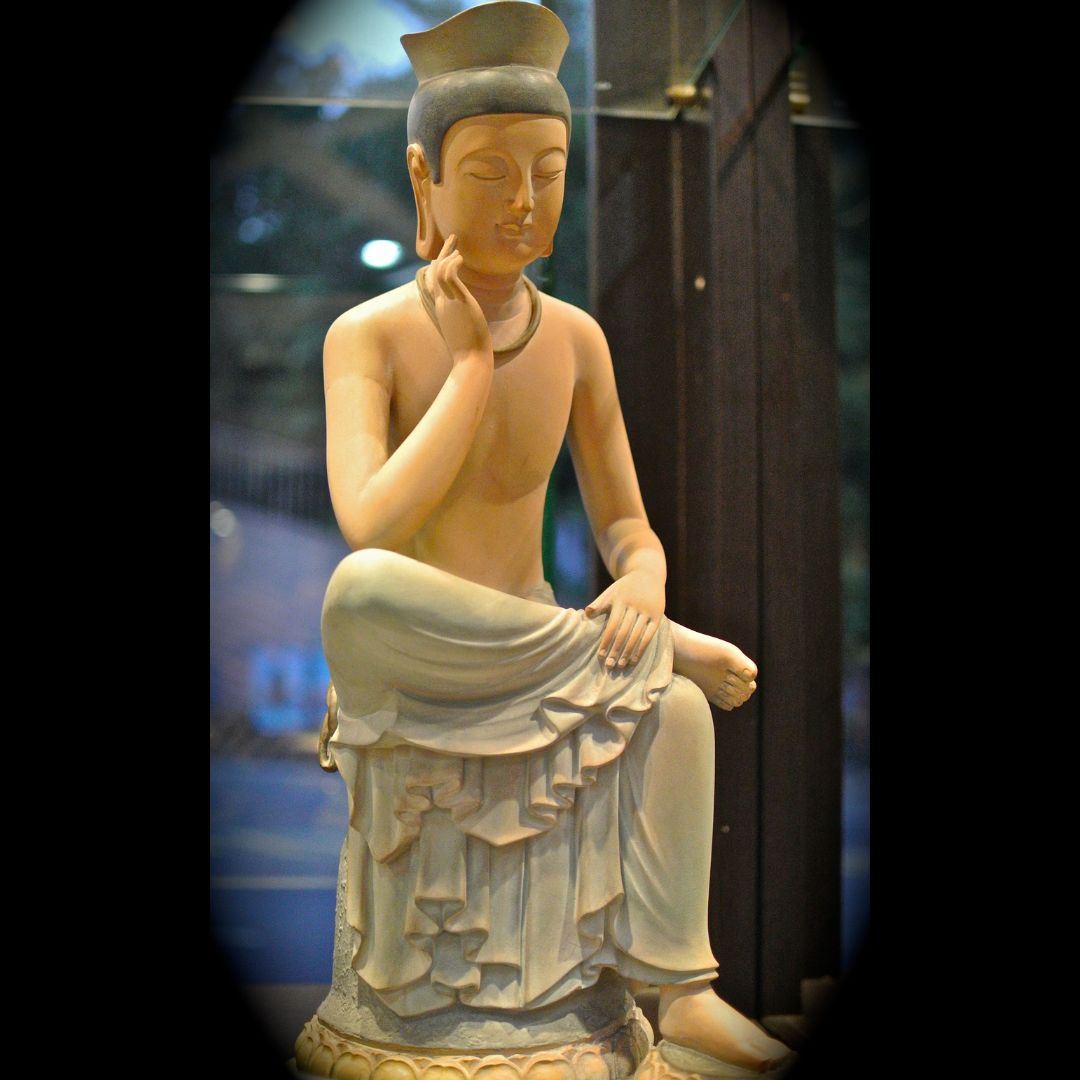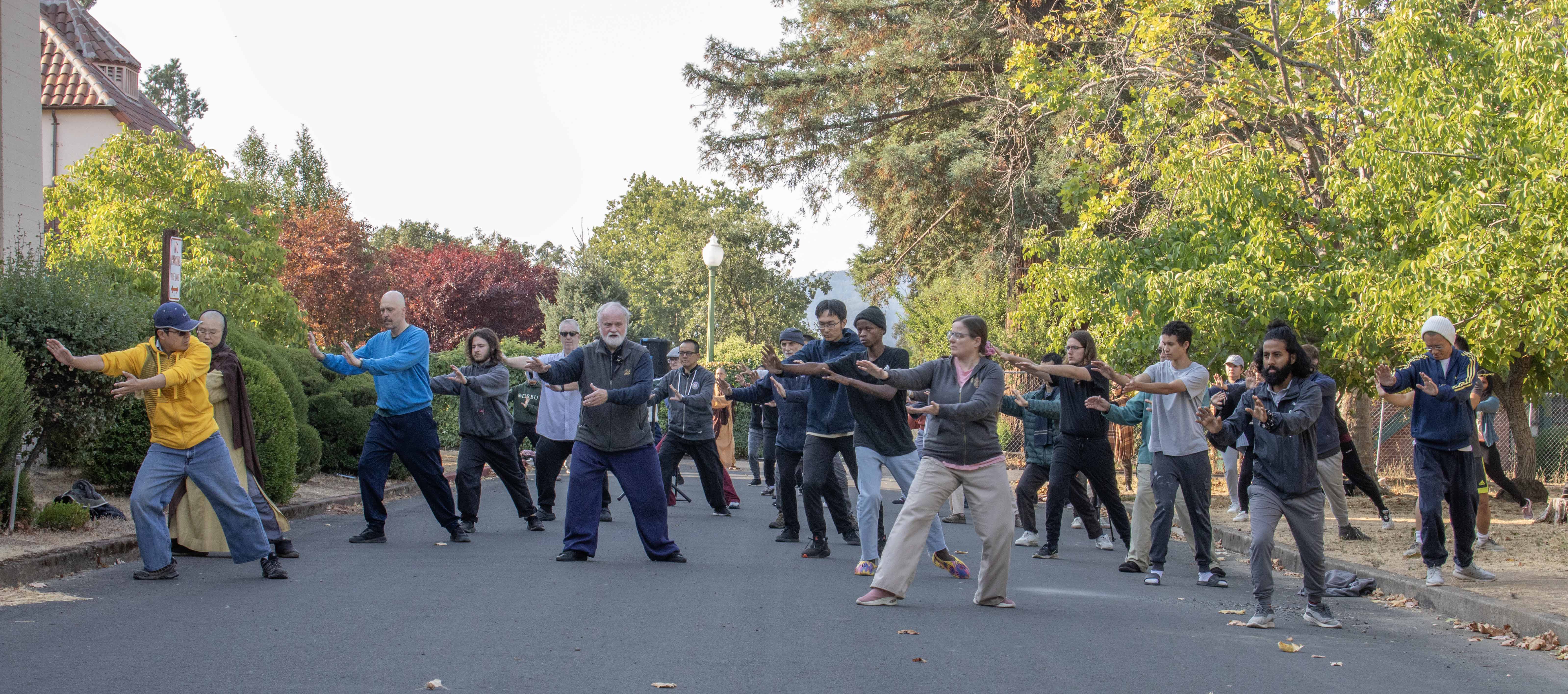
All Beings, All Worlds: Interdependence and Social Inequality
The following is from Dean of Academics, Professor Martin Verhoeven, in response to the ongoing Black Lives Matter movement and the recent events in Minneapolis and around the world.
First, I want to commend you for caring, and for asking what should be asked, not only by you but by everyone. Feelings and emotions overwhelm—outrage and shame, shock and frustration, anger and compassion regarding what’s happened in Minneapolis. But not just Minneapolis, throughout the world. Not to be affected, not to be nearly overwhelmed, would be an even bigger problem.
I say “nearly,” because to be overwhelmed is to be paralyzed when action is required—action that channels rage into wisdom. But wisdom is not some abstract mental thing; it is totally engaged, everywhere alert. Wisdom is a how you do, not a what you have: it is doing without confusion; doing things well, successively,
“In every place and in every moment, in thought after thought,
never becoming muddled and constantly acting wisely—just this is practicing prajna.”
—The Sixth Patriarch’s Dharma Jewel Platform Sutra
The “constantly acting” means inaction is not an option.
When I was 10 or 11 years old I was profoundly moved by a passage I read in Albert Schweitzer’s autobiography where he describe his philosophy of life: “I am life that wills to live, in the midst of life that wills to live. . .thus all I do must be directed by ‘reverence for life/lives.’” This became central to my way of life, as well.
Yet as I observed the world, even at a young age, I could see that this basic principle was everywhere ignored, trampled on, crushed down. Life did not matter to so many people. Lives were extinguished with an almost wanton disregard.
I’ve been lately talking to friends of mine – fellow historians – and we’re not so convinced that the trajectory of history is one of progress. These are things that we were struggling with back in the 50s and 60s, and maybe thought we had moved beyond, and here they are staring us in the face once again. Although there had been changes and progress, these underlying hatreds, biases, hostilities and prejudice—the general insensitivity and disrespect for lives (other than one’s own) is as flagrant as ever. Big, unresolved issues continue to nag us. So every generation, it seems, has to face this again, and again, and again.
Very early on, I got engaged – I was 15 or 16 – in the Civil Rights Movement in Chicago in Milwaukee, the places and the areas closest to me. That was a mind-changing experience for me, to actually go out and get involved in voter registration, demonstrations against unfair housing, breaking down discrimination in every area of life, and at that time, it was segregated schools.
I was really young, and green; sort of cutting-my-teeth. And I have to say I really had no idea what I was doing. I had really no idea of the actual lives of the difficulties that these exploited and marginalized folks faced, felt. I was out there naively trying to be a do-gooder. I may not have changed their lives, but I changed my family and the people around me who were wondering why I was doing this. And because I was young and outspoken and kind of innocent, they had to listen and pay attention in ways they wouldn’t to “outside agitators,” like Dr. Martin Luther King or Caesar Chavez.
Engagement hasn’t stopped for me; it’s just changed over my lifetime. At some point, I realized that if I was going to change the world, I had to change my own heart and straighten out my own mind. I realized this naturally, even before I met Master Hua and encountered this basic teaching in Buddhism. It was later in the anti-war movement of the 60s and early 70s that I began to see that no change was going to come just by protesting and demanding others do what was right, unless I myself got it right.
When I first came into Dharma, it was the teacher more than the teaching, the embodiment, a Dharma Master, Hsuan Hua, and the impact on me of his virtue, kindness, gentle and just wonderful, warm insight, that moved me. I realized for the first time in my life I had not yet sufficiently changed my own heart and mind so as to really make a difference in the world. I was out there doing all protesting, marching, confronting, and really excited and exercised about changing the world, but as far as my own greed and anger and stupidity and ego— the root of it—that hadn’t been touched.
I got to a point where I think the Dharma, both inside and out, micro and macro, has one really strong root message: there is no difference between myself and all that lives. All worlds, all beings, even all the elements. That truth, to me, is the heart of really seriously positive engagement.
Anything less than seeing the non-duality of myself and all beings and all worlds is the problem. That distinction, that discrimination, that difference, once set up, is the precise root which grows into racism, to speciesism, to war, to environmental devastation, to exploitation, to abuse, and the notion that “other lives do not matter.”
I’m talking about inner abuse that says “I do not matter,” and ends up in a kind of nihilistic abandon, lack of self-respect, not cherishing one’s own spiritual nature; but also abuse of others: children, spouses, siblings, friends, of parents, of the elderly, of all the “OTHERS” created by this off-mind. Domination and violence and hatred all come from setting up this false dichotomy.
The Dharma clearly says that the mind that created this distinction is also the mind that removes it. It’s this mind, our very own mind, that we’re either neglecting or cultivating, that’s at the heart of what’s going on in the world. Change your mind, change the world. Cultivation begins – and I would say it must begin – in this, the smallest of places. But it does not end there. It ends where the Dharma Realm ends; it ceases when all living beings cease. It has no boundary or limit. To think that self-cultivation is only about yourself completely misses the boat.
If you thought it ended here or there, yesterday or tomorrow, what do you think the Bodhisattva Vows mean!? “Living beings are boundless, I vow to liberate them all.” That is the statement of engaged Buddhism. “Afflictions are endless, I vow to change them all.” What is this talking about? Racism is an affliction. Violence is an affliction. Inequity and indifference are afflictions. Privilege is an affliction; poverty is an affliction. It’s talking about a formula for profound engagement. All of these are born from the same mind that can remove them. Nothing is fixed or fated, doomed or destined. Nor are things just going to magically get better with time.
Lives matter. And right now, we need to focus on Black lives, and unless the fundamental false mind changes, tomorrow it will be another life, other lives, throughout the six paths and three periods of time. It’s not about just sitting in meditation and getting your head calm and clear. Because, if you do meditation correctly, you will inexorably become aware that we are interconnected with everyone and to everything. From stillness it all starts to move and radiate. This stillness is not the act of “stopping”; it is moving without hindrance. That is what the Sixth Patriarch means by “everywhere engaged; nowhere attached.”
This is to me the key of Buddhist engagement. It has to begin with getting this methodology down in oneself. It really isn’t for me to say how or where or when you might engage; I’m not here to tell you that you should go out and demonstrate, protest, or not do that. I would not presume to tell anyone to do this or that. That is for you to decide. But if you think of yourself as a “buddhist,” you have to be, wherever and however you can, “everywhere engaged and nowhere attached.”
But “Nowhere attached” does not mean being apathetic and uninvolved; uncaring and aloof. Instead, it means your ego is subdued. You’re acting, but not acting from greed or anger or animosity or ignorance. That’s what it means to be “not attached.”
Only then you can be everywhere engaged and not just make everything worse. Otherwise, my action, no matter how passionate and eager, is part of the problem. Ego not subdued just fans and feeds the very conditions I am protesting against: hatred, anger, bullying, fuzzy about the means justifying the ends.
But let me say this also: I don’t think engagement is a choice. People are asking, “should I get engaged or not engaged”? But engagement in the buddhist sense is reality, not an option. Engagement is things as they really are. We are, by the very nature of conditioned existence, always engaged – interrelating, interdependent, interfused.
You could use the metaphor of Indra’s net: a vast net that stretches infinitely in all directions. In each “eye” of the net is a single brilliant, perfect jewel. Each jewel also reflects every other jewel, infinite in number, and each of the reflected images of the jewels bears the image of all the other jewels — infinity to infinity. Whatever affects one jewel affects them all.
It illustrates the interpenetration, inter-causality, and interbeing of all things. As one Buddhist scholar noted, “Thus each individual is at once the cause for the whole and is caused by the whole, and what is called existence is a vast body made up of an infinity of individuals all sustaining each other and defining each other. The cosmos is, in short, a self-creating, self-maintaining, and self-defining organism.” There’s no time that we’re not engaged; it’s the very nature of the world. It’s the very nature of reality, interrelated and interdependent.
Even when you think you’re not engaged, you’re engaged. Leaving home doesn’t mean you disengage – it just means you’re engaged in another way. And if you refuse to do something that your conscience beckons you to do that, that’s also engagement. Your non-engagement is engagement. There’s no way to escape it. So it’s not whether you should engage or not – it’s how you’re going to work with and live in that state of always-engaged.
What I have just said may not necessarily be the answer you were hoping for or wanting. Nor does it tell you what you should or should not do, or encourage or discourage you one way or the other. But I would say that, intrinsic to these teachings, you will find engagement is treated at a very deep level that could inform and sustain skillful action. And if one takes it up, there’s no difference between innerwork and outerwork, between this world and other worlds, between living beings here and living beings throughout the world.
With this grounding, whatever you do then, it doesn’t matter – it will come out right, or very nearly so. You can do magnificent things. You can bow or chant or meditate and transfer; or you can run for public office, start up a company or NGO, or run for president. You can even be in the military or police and generate change right where it is most urgently needed. As an ancient text says: “Self-cultivation is the root of everything else.”
If rightly tended, no creature but thrives;
If neglected, no creature but pines away.
With this root, real change can happen; you’ll make a difference. But without this root, no matter what you do, the further away from it you will go.
In the dark house of the afflictions,
Always keep burning bright the sun of wisdom.
—Huineng


